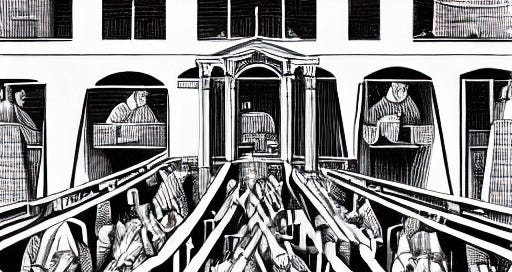Emanuel’s spiritualism dates to his childhood. It’s part of—as I read it—an ongoing quest to make sense of his life, of his place in the universe. It’s an ordering force.
This mystic search persists through the tumult: the early death and physical trauma; the gang affiliations and prison bids. “The spiritual seed was planted and watered and cultivated from the cradle,” he writes.
First it was “the Nyahbingi order of the Rastas”; the group venerates Haile Selassie, advocates repatriation to Africa. Emanuel’s grandmother was a member. Under her care, he wore dreadlocks and “traditional style garment,” ate “a disciplined vegetarian diet.”
There’s no discussion, in his memoir, of his conversion to Islam—of his presumed disenchantment with the Rastafari. Family members describe this conversion as a preservation move: an effort to avoid prison rape during his years in Attica. Whatever the circumstances, it’s a familiar, common decision.
Familiar, perhaps most famously, because of Malcolm X. “As a prisoner,” Manning Marable writes in his biography, “he embraced an antiwhite, quasi-Islamic sect that nevertheless validated his fragmented sense of humanity and ethnic identity.” (Malcolm later moved away from this sect, the Nation of Islam, toward orthodoxy.)
Common, because the percentage of Muslim prisoners across the U.S. “appears to be increasing”: the state prison system’s Muslim population is around 9 percent; the country’s, 1 percent.
Islamic prisoners are discriminated against; they’re denied religious rights. Emanuel’s new identity thus became a salvation, grounds for abuse—and a target on his back upon release.



